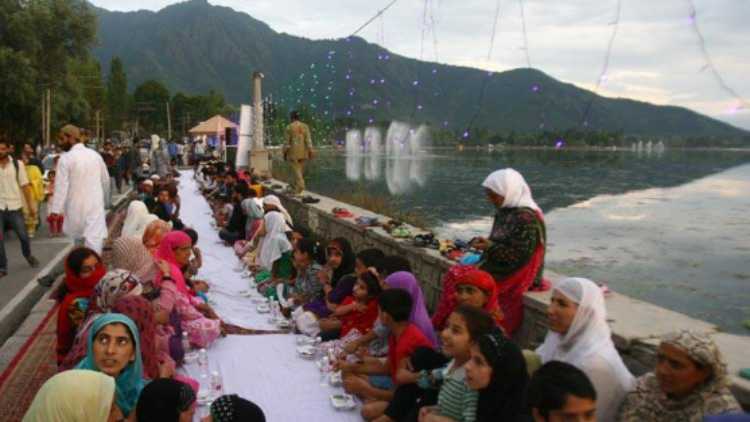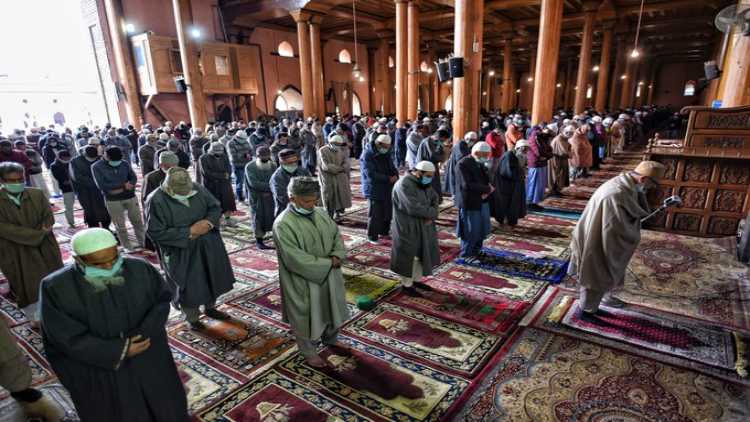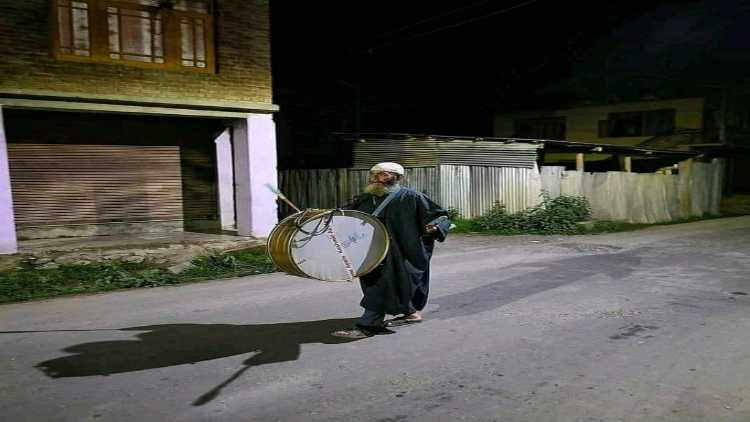
Ehsan Fazili/ Srinagar
Five years ago, a group of Kashmiri youth had organized a 1.6 kilometre long Iftar party on the banks of Dal Lake along Srinagar’s Boulevard road to start a tradition and set a record of sorts. It rhad turned out to be Asia's longest iftar party.
This Turkish Ramazan tradition of throwing Iftar parties in public places had caught up with young men and women throwing smaller parties at the iconic places.
This trend would have continued but for the incessant disturbances that necessitated prolonged lockdowns in Kashmir in the past.
Though the law and order situation in the Valley has improved, yet it’s for the second consecutive year that Muslims in Kashmir are observing the Ramazan with restrictions, this time due to unrelenting Coronavirus.
However, the COVID-related restrictions have not dampened the spirits of Kashmiri for the Holy month that began last week like in the rest of the country. Religious fervour remains intact with political and religious leaders greeting people on the occasion.
In his message, the Lt Governor, Manoj Sinha on the auspicious occasions of Navratras, Navreh, Ramzan and Baisakhi hoped that “this auspicious period would be the harbinger of harmony, brotherhood, amity, progress, and growth for all in J&K.”

Prayers in a Srinagar mosque
PDP leader Mehbooba Mufti’s message was interesting. She wrote, “The beauty of a diverse nation & pluralistic society is when people of all religions share the joy & blessings of their festivals. Happy Navratri & Baisakhi to everyone celebrating.”
Though in this era of mobile phone waking us up with the alarm, the tradition of a man beating a drum to wake up the Muslims for morning Sehri still continues in some areas of Srinagar and the countryside.
In all the mosques and religious places the SOPs (Stand Operating Procedures) are followed in view of a the Covid 19 pandemic are strictly followed. These SOPs envisage social distancing, use of face masks and use of sanitisers as precautionary measures to prevent the spread of coronavirus.
There has been a steep rise in the Covid positive cases in J&K during the past fortnight. While the number of these cases was as low as 157 on March 23 last, it has crossed the four-digit mark during the past week. It was close to one thousand cases per day during the first week of April.
The four-digit figures of 1269, 1086 and 1005 registered during the past one week, has crossed the highest number of cases registered last year.
Amid the rising number of cases with Do’s and Don’ts being issued by the authorities, the number of shoppers in Srinagar markets have over the weeks come down, while only essential supplies are in demand. Social distancing is maintained during prayers in the mosques or outside the main mosques during Ramazan, depicting the much lesser number of people in the market places.

Drum man waking up people for sehri in Srinagar (Twitter)
“The rush of shoppers usually rises by mid of Ramzan, ahead of Eid-ul-Fitr, but like the last year, nothing can be predicted”, said Merajuddin, a fruit vendor in Lal Chowk.
Apart from the day to day requirements of mutton and chicken, fresh vegetables and fruit, dates continue to remain in much demand for breaking the fast at the dusk. “This is regarded as sacred and we use it the most during this holy month”, said Abdul Aziz, a shopper here.
These dates, ranging from low to high quality, constitute a major part of the dishes (Iftaar) taken to break the fast in the evening. The dates, during Ramzan, here are available at all shops including fruit vendors, vegetable and grocery shops though some of the vendors hawk it on pushcarts.
Though the trend of hosting official iftar parties in the country has come down but in Kashmir these have continued. However, the hosting of official parties had ended with the restrictions starting from lockdown imposed after the abrogation of Article 370 in 2019.
However, the families in Kashmir continue to relish the Iftaar jointly before offering the evening prayers, as there is hardly any tradition of holding open-air iftars.
The government has ensured the fixed prices of mutton, a staple for Kashmiris, and taken strict actions against the meat sellers who were found overcharging. Two meat shops in Srinagar have been sealed for this.
